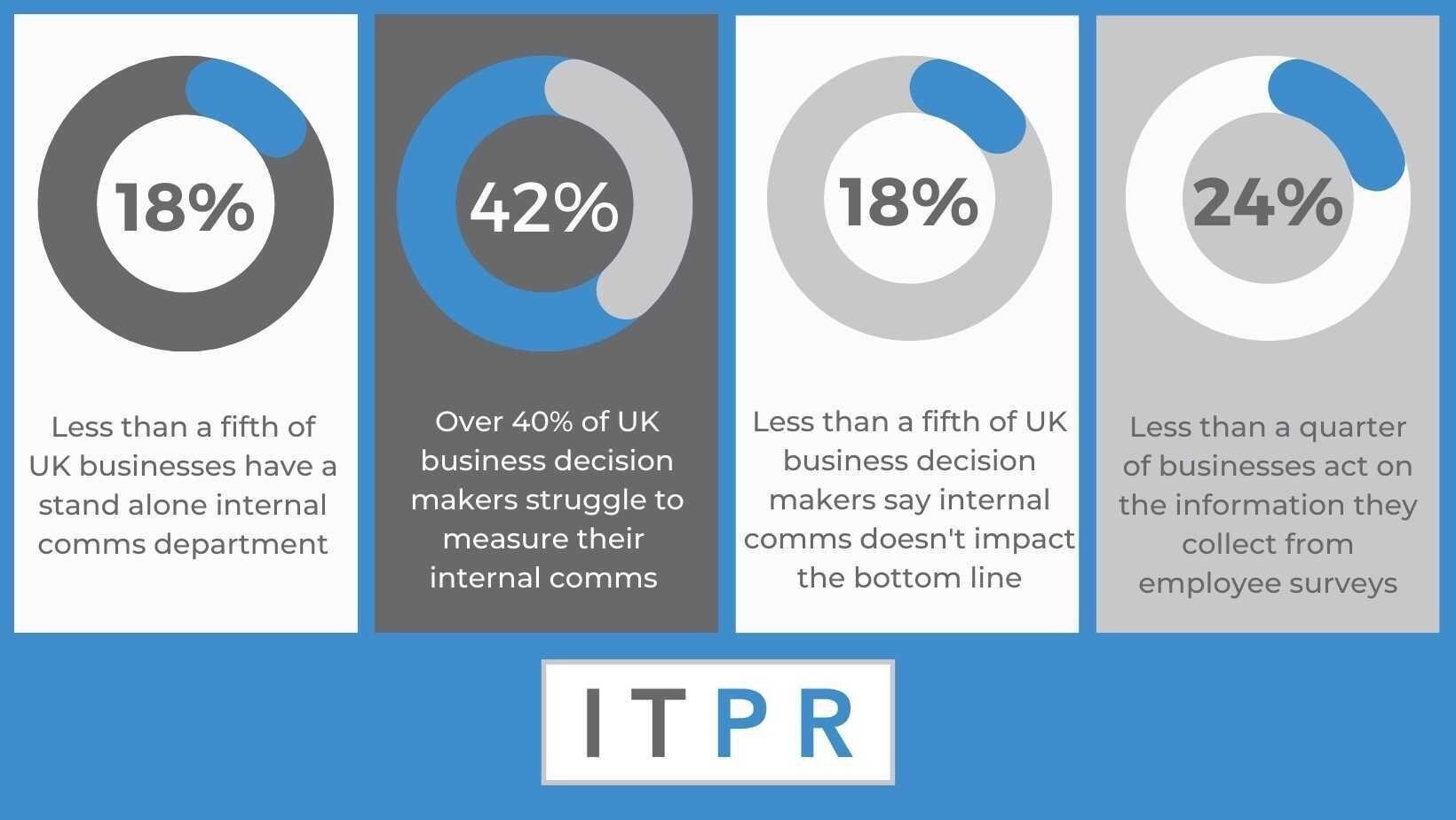Latest UK Research Presents A Reality Check.
Has internal comms finally earned its day in the sun and its long-coveted seat at the table?
Or does its path toward acknowledged relevance continue to be blocked by executive ignorance or indifference?
The results of a recent UK-focused study looking at companies with more than 100 employees should serve as a well-timed reality check for IC pros going into 2023.
Some of the top-line figures are alarming.

Only 49% of surveyed business leaders believe that internal communication adds bottom-line value to their organizations.
Less than a quarter (24%) of businesses always consider internal communications when discussing key strategic decisions, or always take employee feedback into account.
23% confirm a lack of interest from senior leaders as a barrier to investment in internal communication, and 14% say there is no budget.
Of 12 top issues cited as frequent employee complaints, three related directly to communication issues:
- Lack of communication from senior management - 31%
- We don’t know what’s going on in the business - 21%
- We hear about business news from other departments first - 13%
While the survey focused on smaller companies rather than the large enterprises where professionally-run IC has been more dominant, the report also notes that internal communication has been the subject of academic interest in the UK for about 30 years. Indeed, the UK is still seen by many as a global leader in the IC world, and results like these still show a need to engage leaders more constructively and more urgently.
So, how should we go about doing that?
Getting executive attention focused on internal comms leaders has been considered both as an eternal challenge and as a never-ending source of opportunity, attitudes reflected in responses to the current #WeLeadComms Communication Leaders Survey being conducted in cooperation with Sparrow Connected and AB.
But what are communication leaders saying that could become decisively persuasive for business leaders? Some arguments highlighted by #WeLeadComms survey participants include:
1. Changing Workplace Strategies Necessitate Greater Commitment
“As world becomes more digitised and remote work become more prevalent, the need for good human engagement, communication and connection has never been more important. “
“Rethinking the way we deliver internal communications in a hybrid world”
“Rise of new social platforms that allow for more community building”
2. Organizational Noise Needs To Be Consciously Reduced & Managed
“‘Sender-centric’ approaches to communications (i.e., tendency to bombard audiences with noise)”
“Too much noise in the comms space”
“Using creativity and simplification to cut through the noise”
“Signal to noise ratio”
3. Internal Influence & Siloization Need To Be Addressed Along With Top-Down Messaging & Bottom-Up Feedback
“Leveraging influencers and champions.”
“Break down silos”
“Foster culture now that hybrid has created many more silos in our organization.”
4. Fit-For-Purpose Internal Communication Technology Can Improve Efficiency, Cohesion & Retention
“To better exploit digital tools for more impact”
“Use of technology to reach, engage and measure”
“Embracing technology for comms channels:”
“Investing in digital channels that support hybrid/remote work.”
Some communication leaders say that it’s not enough to try to persuade business leaders as to the merits of greater investment and engagement in internal communication, and see better measurement and higher data literacy as ways they themselves can have more influence with business leaders.
“Embrace data and help define the data that is used to drive decisions”
“Increasing our influence with more sophisticated data reporting and analysis.”
“Incorporate measurement that shows meaningful metrics and resonates with business acumen.”
Indeed, it is the challenge of resonance that appears to underscore the ongoing disconnect between communication leaders and business leaders, a disconnect jarringly resurfacing with the ITPR study.
Can data and measurement become the bridge that finally gets business leaders to recognize the value of internal communication? And if not, does anyone have another idea?
Mike Klein is a strategic communication consultant based in Reykjavik, Iceland. His 1996 MBA thesis at London Business School, analyzing internal communication in FTSE-listed companies, was one of the earliest academic pieces on the subject. He is now offering a masterclass on internal communication measurement called Measurement: Putting it on Rails.
Get personal with Sparrow Connected. Book a demo today!






